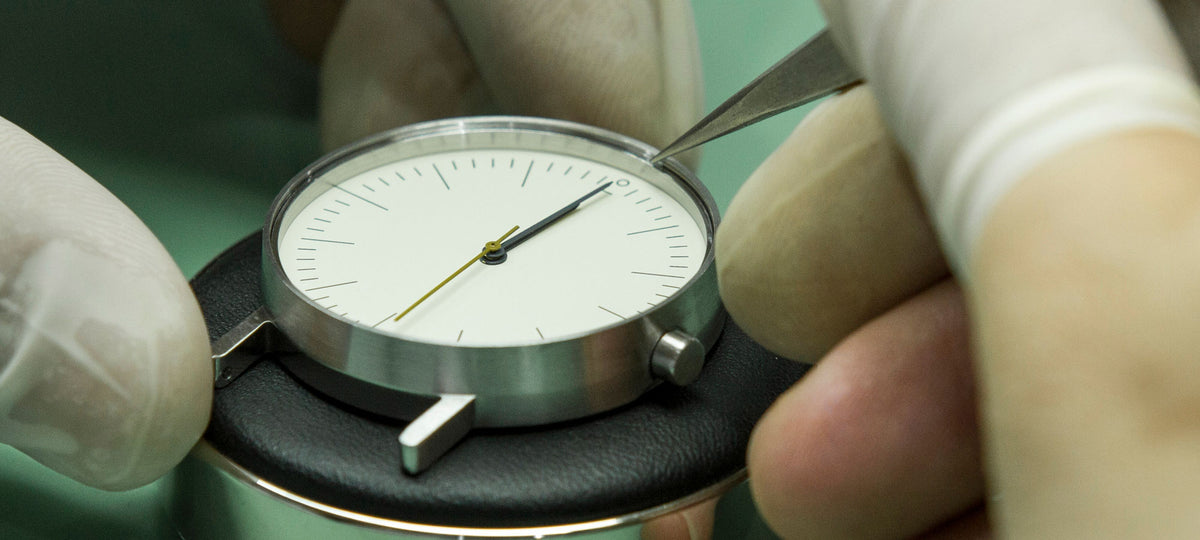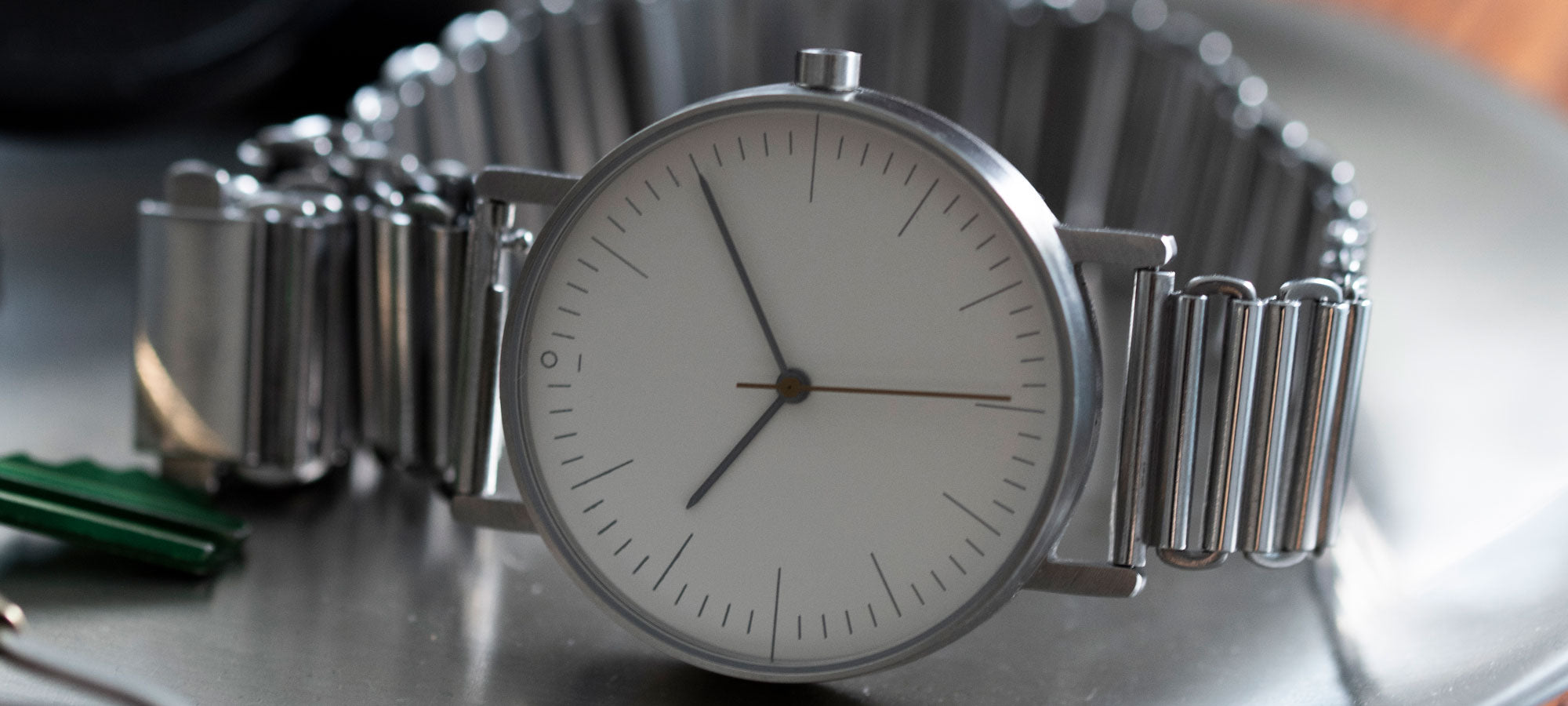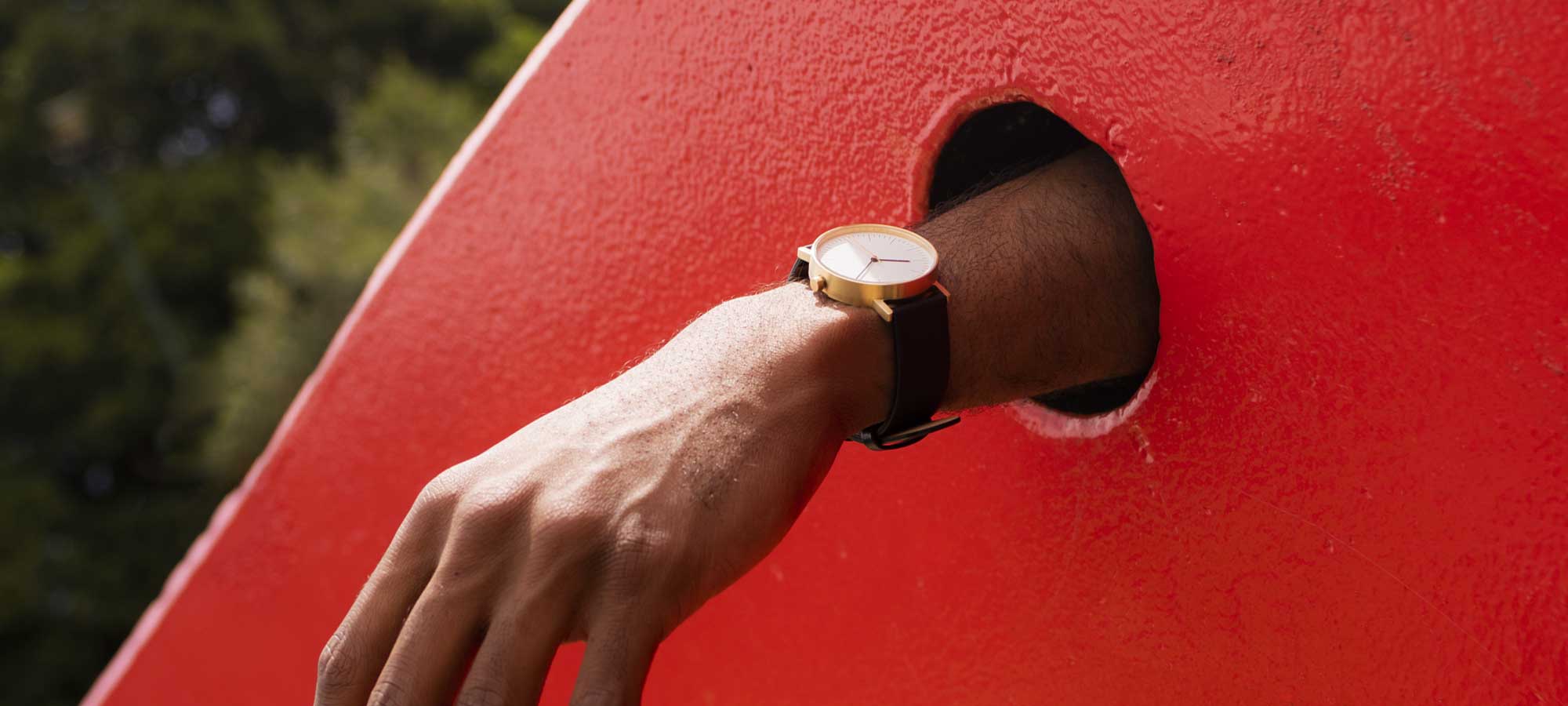A quartz watch can appear so simple on the surface but it has years of development and technology compacted into such a small space. This is what excites me about watch movements and the ever changing technology. While mobile time keeping devices like pocket watches emerged in the 16th century, it wasn’t until the late 1960’s that a quartz movement was debuted.
If you’re more of a visual learner, this video does a great job in showing how the movement is keeping time. If you want some further detail, read on below.
To understand a quartz watch, we need to know what it’s made up of. Essentially it’s a small electric circuit powered by a cell battery. The battery powers a Quartz Crystal Oscillator that powers a small series of gears to move the hands. To begin, understanding how the watch works, lets take a look at the parts:
1. Quartz Crystal Oscillator:
At the heart of a quartz watch is a tiny piece of synthetic quartz crystal, often shaped like a tuning fork or a small bar. Quartz crystals possess a unique property known as the piezoelectric effect, wherein mechanical stress applied to the crystal produces an electric charge and vice versa.
In a quartz watch, an electric current from the battery is applied to the quartz crystal, causing it to vibrate at a specific frequency determined by its size, shape, and cut. Most quartz watches operate at a frequency of 32,768 Hz, meaning the crystal vibrates 32,768 times per second.
2. Frequency Division:
The high frequency produced by the quartz crystal is too fast for timekeeping purposes. Therefore, the watch circuitry includes a frequency divider or counter circuit, which divides the high frequency of the quartz crystal into lower, more manageable frequencies. This process ensures that the watch's timekeeping mechanism operates at a suitable pace.
3. Timekeeping Mechanism:
The divided frequency signal from the quartz crystal oscillator is used to regulate the timekeeping mechanism of the watch. In quartz watches, this mechanism typically involves a stepper motor or a tiny electric motor that drives the gear train responsible for moving the watch's hands.
The gear train translates the precise movements of the motor into the appropriate rotational speed for the hour, minute, and second hands of the watch. The gears are carefully calibrated to ensure accurate timekeeping, with each gear ratio precisely controlling the movement of the hands.
4. Feedback Loop:
Quartz watches incorporate a feedback loop mechanism to maintain accuracy. This mechanism continuously compares the time measured by the watch with a reference time signal derived from the quartz crystal oscillator. If the watch starts to run fast or slow due to factors such as temperature variations or battery voltage fluctuations, the feedback loop adjusts the frequency of the electric signal applied to the quartz crystal to compensate for the deviation.
Advantages of Quartz Watches:
- Accuracy: Quartz watches are renowned for their exceptional accuracy, typically losing or gaining only a few seconds per month.
- Reliability: The electronic components of quartz watches are highly reliable and less prone to mechanical wear and tear compared to traditional mechanical watches.
- Affordability: Quartz watches are generally more affordable to manufacture and purchase than mechanical watches, making them accessible to a wide range of consumers.
- Low Maintenance: Quartz watches require minimal maintenance, as they do not rely on intricate mechanical parts that require regular servicing.
In summary, quartz watches operate by harnessing the piezoelectric properties of quartz crystals to maintain precise timekeeping. The quartz crystal oscillator serves as the heartbeat of the watch, generating a high-frequency signal that is divided and regulated to drive the timekeeping mechanism. Through a feedback loop mechanism, quartz watches ensure accuracy by continuously adjusting the frequency of the quartz crystal to compensate for deviations in timekeeping.
With their exceptional accuracy, reliability, affordability, and low maintenance requirements, quartz watches have become ubiquitous timekeeping devices that continue to evolve as technology allows parts to be produced smaller.


